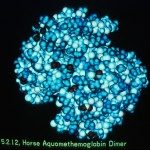Link to Pubmed [PMID] – 30835870
Link to HAL – univ-angers-02624198
Link to DOI – 10.1111/cmi.13021
Cell Microbiol 2019 Jul; 21(7): e13021
Protozoan pathogens secrete nanosized particles called extracellular vesicles (EVs) to facilitate their survival and chronic infection. Here, we show the inhibition by Plasmodium berghei NK65 blood stage-derived EVs of the proliferative response of CD4+ T cells in response to antigen presentation. Importantly, these results were confirmed in vivo by the capacity of EVs to diminish the ovalbumin-specific delayed type hypersensitivity response. We identified two proteins associated with EVs, the histamine releasing factor (HRF) and the elongation factor 1α (EF-1α) that were found to have immunosuppressive activities. Interestingly, in contrast to WT parasites, EVs from genetically HRF- and EF-1α-deficient parasites failed to inhibit T cell responses in vitro and in vivo. At the level of T cells, we demonstrated that EVs from WT parasites dephosphorylate key molecules (PLCγ1, Akt, and ERK) of the T cell receptor signalling cascade. Remarkably, immunisation with EF-1α alone or in combination with HRF conferred a long-lasting antiparasite protection and immune memory. In conclusion, we identified a new mechanism by which P. berghei-derived EVs exert their immunosuppressive functions by altering T cell responses. The identification of two highly conserved immune suppressive factors offers new conceptual strategies to overcome EV-mediated immune suppression in malaria-infected individuals.








